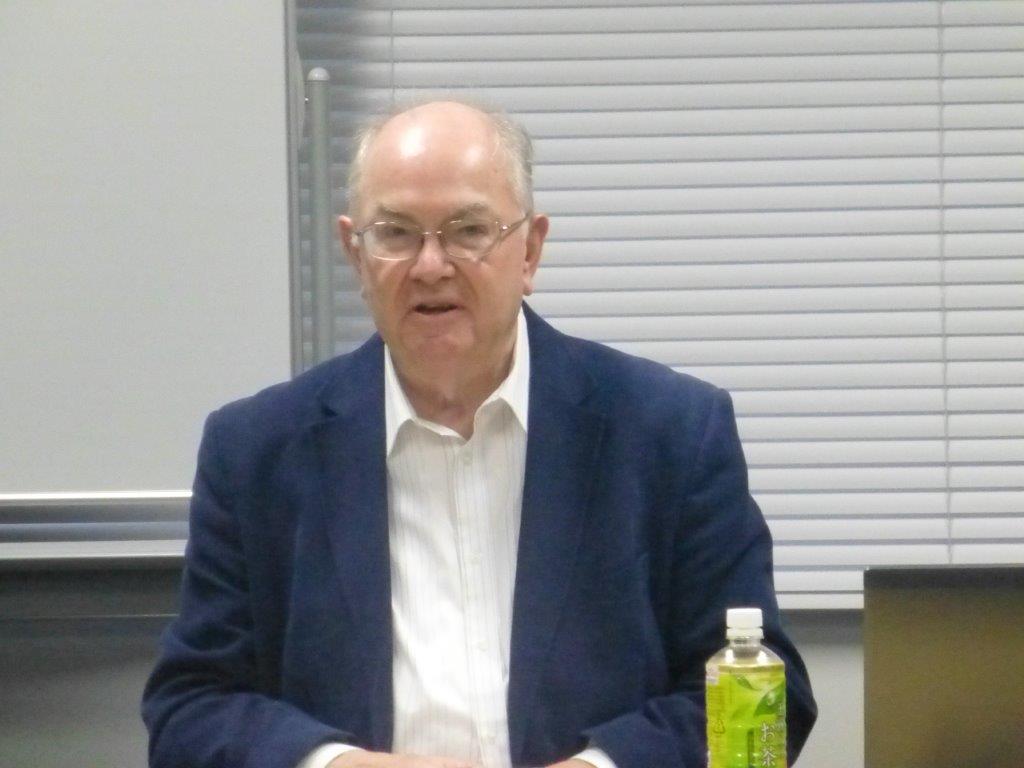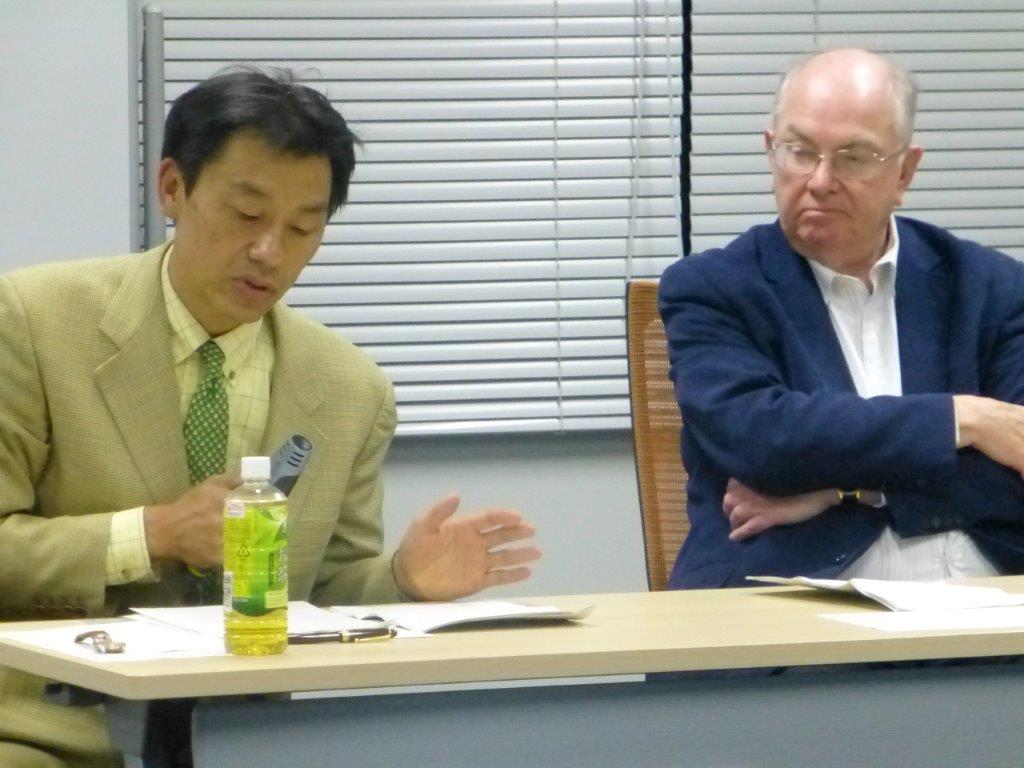2017年4月24日 HPI研究フォーラム
講師 ロバート H. テイラー(京都大学東南アジア研究所招へい研究員/シンガポール東南アジア研究所(ISEAS)上席客員研究員)
広島平和研究所では、下記のとおりHPI研究フォーラムを開催しました。


1. テーマ
「東南アジア政治における軍の役割の比較」
2. 日時
2017年4月24日(月) 18:30~20:30
3. 場所
広島市立大学サテライトキャンパス セミナールーム2
広島市中区大手町4-1-1 大手町平和ビル9階 (市役所本庁舎向い)
4. 講演の概要
冷戦終結後、かつては軍事政権が統治していた東南アジア諸国において、文民政権が設立される傾向がある。現時点での例外は、タイ王国であるが、インドネシアとミャンマーは文民政権への移行期にあり、フィリピンは文民政権を打倒しようとする企てを辛うじて回避している。しかしながら、だからといって、これらの国々や他の東南アジア諸国政府の軍が文官当局の確固たる統制下にあることを意味するわけではない。実際には、幾分逆のケースもありうる。欧州史における歴史的類似点の観点から、軍の政治的役割を比較考察することは、有益な試みといえよう。今回の講義では、それらに焦点をあて、東南アジアの政治における軍の将来への影響について論じる。
5. 講師の略歴
1974年、米国コーネル大学にて博士号取得(政治学)。オーストラリアのシドニー大学で教鞭をとった後、英国ロンドン大学東洋アフリカ研究学部で政治学教授を務め、その後、同国バッキンガム大学で副総長を務めた。現在、京都大学東南アジア研究所の招へい研究員であり、2013年からはシンガポールに拠点をおく東南アジア研究所(ISEAS)の上席客員研究員も務めている。ミャンマーの政治学研究を主とする出版物も多く、現代東南アジア史に関する権威ある教科書への貢献も大きい。主な著書に"The State in Myanmar" (NUS Press, 2009)、"General Ne Win: A Political Biography" (Iseas-Yusof Ishak Institute, 2015)などがある。
HPI Research Forum on April 24, 2017
〝Comparing the Role of the Military in the Politics of Southeast Asia″
By Robert H. Taylor, Visiting Research Fellow at the Center for Southeast Asian Studies at Kyoto University/Visiting Senior Research Fellow at ISEAS-Yusof Ishak Institute, Singapore
The Hiroshima Peace Institute held an HPI Research Forum as follows:
1. Topic
"Comparing the Role of the Military in the Politics of Southeast Asia"
2. Date and Time
April 24, 2017 (Mon.) 18:30-20:30
3. Venue
Seminar Room 2, Satellite Campus, Hiroshima City University
4-1-1 Otemachi, Nakaku, Hiroshima
9F Otemachi Heiwa Building
4. Abstract of the Forum
Since the end of the Cold War, there has been a general trend toward the establishment of civilian regimes in the formerly militarily governed countries of Southeast Asia. The obvious exception at the moment is Thailand. Indonesia and Myanmar have transitioned to civilian led regimes and the Philippines has managed to fend off attempts to overthrow civilian governments. That, however, does not mean that the armies of these and other Southeast Asian governments are under the firm control of civilian authorities. Indeed, the opposite may, in part, be the case. Examining the political role of the military comparatively, in the light of historical parallels in European history, remains a fruitful endeavor. Professor Taylor’s lecture will focus on these concerns and their implications for the future of the military in Southeast Asian politics.
5. Profile of Robert H. Taylor
Robert H. Taylor graduated from Cornell University with a Ph.D. (Government) in 1974. He previously taught at the University of Sydney and was Professor of Politics at the School of Oriental and African Studies (University of London) before serving as Vice-Chancellor of the University of Buckingham. He is currently a Visiting Research Fellow at the Center for Southeast Asian Studies at Kyoto University, and since 2013 he has also been a frequent Visiting Senior Research Fellow at ISEAS-Yusof Ishak Institute, Singapore. His publications have primarily been studies of aspects of the politics of Myanmar but he has contributed to several standard textbooks on modern Southeast Asian history. The State in Myanmar (NUS Press, 2009) and General Ne Win: A Political Biography (ISEAS-Yusof Ishak Institute, 2015) are among his major works.
